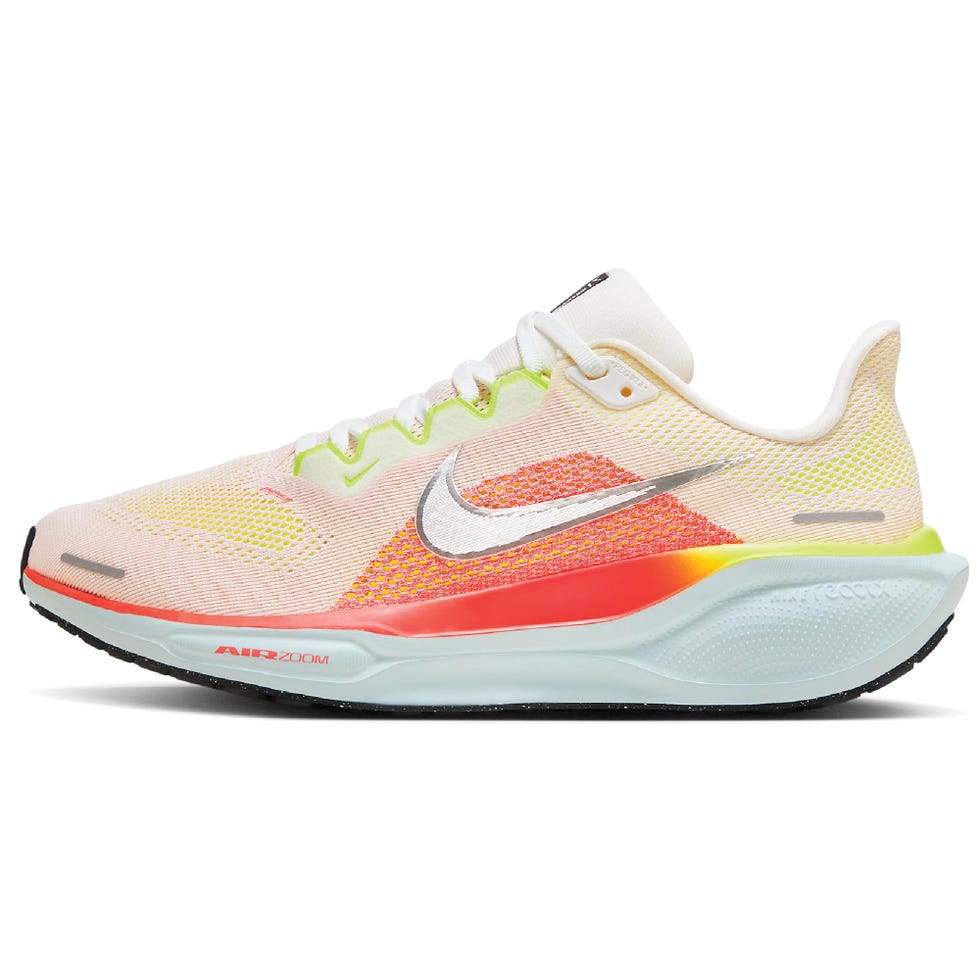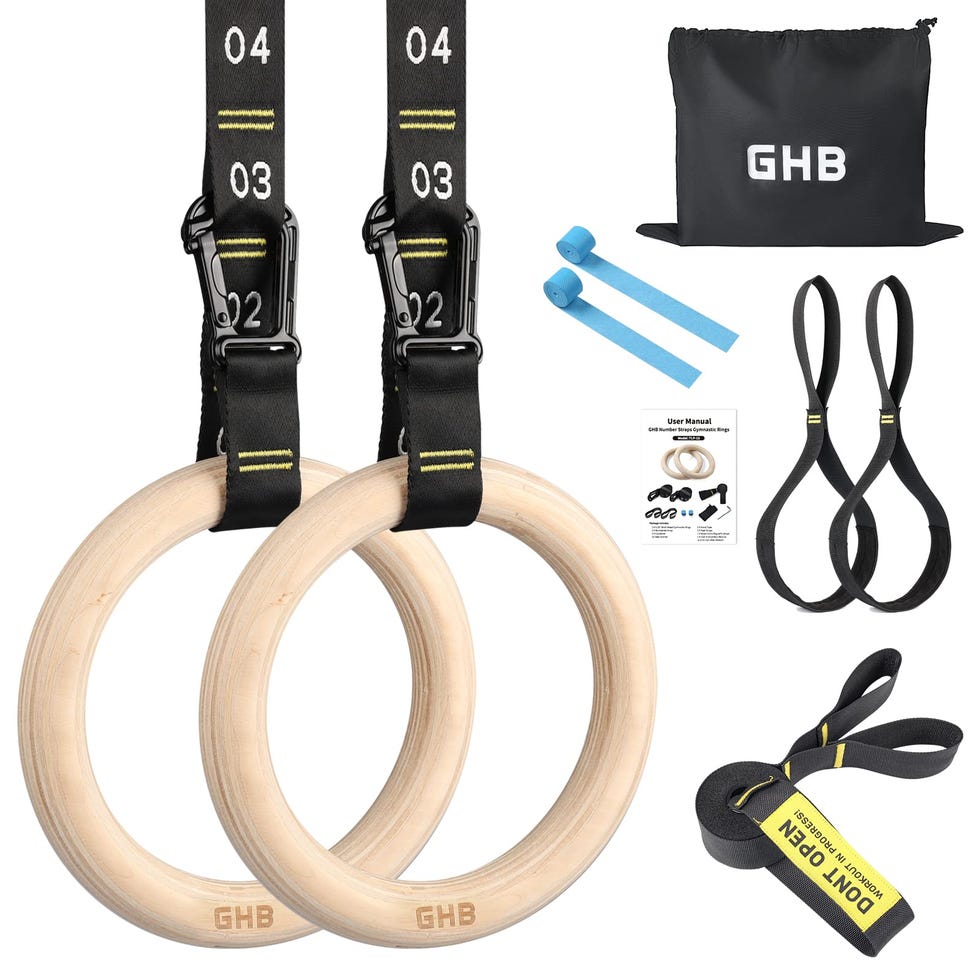I’m a chameleon when it comes to fitness. I don’t limit myself to one particular sport or training method, and at 61 years old, I’m willing (and excited!) to try anything and everything. Between running, aerobics, open-water swimming, obstacle course training, and adult gymnastics, I’ve devoted my life to health and wellness.
I was born with an adventurous spirit, but I attribute much of my athletic passion to an active childhood. Growing up, I frequently moved around the world since my father was in the army. I’m one of six kids, though, so my siblings and I always kept ourselves entertained playing team sports wherever we were—two teams of three. Whether I was at the park or in my backyard, I was always playing outside and realized from a young age that I felt best when moving my body. I also thrived in gym class.
When I moved for high school, I remember being in awe of my adult neighbor who woke up early and went for a run every morning. I was so impressed with his commitment and discipline, and I knew I wanted to be a runner after witnessing his example and dedication. He was my inspiration, so I bought a pair of running shoes and got started.
While I honestly hated running at first, as with most things in life, I knew consistency was key to building endurance and I slowly increased my mileage. And, after a few weeks, my body acclimated and I fell in love with running. I had officially caught the fitness bug and never looked back.
Fast-forward to my 60s: So many loved ones, friends, and followers (find me @baconnfit!), ask me for my tips and tricks to falling in love with movement and staying so consistent with a fitness routine even in my 60s. So, here are the exact motivation hacks, workout tools and equipment, and mindset shifts I’ve adopted over the years to stay fit and focused throughout every decade.
1. I constantly change up my routine and challenge myself to learn new modalities and skills.
Although I continued running every morning to kickstart my day, in my 20s (in the era of Jane Fonda), I also started regularly teaching aerobics to help support my college tuition. I was always a shy, anxious person, but teaching aerobics made me feel physically and mentally strong.
Aerobics gave me a welcomed confidence boost, and I loved the combination of cardio, light strength training, and stretching. I also appreciated the impact it had on my body. I was building muscle mass, felt overall stronger in daily life, and noticed improvements to my running form and efficiency thanks to the added muscle.
But after 26 years of teaching, I started to burn out on aerobics and knew it was time for a break. I still loved my daily runs, but I was ready for a new challenge. I truly believe that the downfall to a consistent workout routine is boredom.
My daughter was a competitive gymnast as a kid, and to be honest, I was always a little envious of how fun and impressive the sport looked. I always wished I had started training in gymnastics in my youth, so at 50 years old, I decided to stop wishing and enrolled in a weekly adult gymnastics class. I was immediately hooked.
The uneven bars were great for building my upper-body strength, the beam was key for balance training (which is so important as you get older), and the floor was perfect for experimenting with coordination, mobility, and agility work. I’m not the most talented gymnast, but I pretend I’m an Olympian and give it my all. Not to mention, it’s incredibly fun and freeing.
People always ask how I stay motivated on my fitness journey, and my answer is simple: Try something new and keep things exciting. Boredom sucks the fun out of fitness, and if you’re disinterested, you’ll never stay committed. My goal is to find activities I love and I’m constantly pushing myself for a new challenge.
Beth’s Must-Have Workout Tools For Strength At 61
2. I use early-morning workouts as my me time and meditation.
Today, at 61, I still take a weekly gymnastics class. But I continue to run an average of 45 miles a week. I’m a morning person, so I wake up at 4 a.m. and I’m out the door by 4:30 a.m. (I go to sleep at 7:30 p.m.). I run for at least an hour, sometimes alone and sometimes with a running partner, and use it as a form of meditation. I live in Florida, so running on the beach is my happy place and a time to collect my thoughts, pray, and set the tone for the day.
3. I strength train regularly to help me stay strong and avoid injury as I age.
Immediately after my daily runs, I always do some form of strength training. I don’t follow a specific, regimented routine, but I have a background in personal training, so every day is a game-time decision depending on how I feel. I love calisthenic workouts like pullups, handstands, and muscle-ups since they build strength, balance, flexibility, and control.
Functional lower-body strength and mobility is also key for efficient, injury-free running—so I regularly train squats, lunges, and static split squats. I’m officially retired, so depending what I’m working on, I have the luxury of making my workouts anywhere from one to three hours.
While that might seem like a lot, I value the importance of cross-training and recovery. I have my occasional aches and pains, but I’m so thankful that I’ve never had a major injury—and I credit much of that to my commitment to cross-training. Between cardio, strength training, and mobility work, constantly activating different large and small muscles promotes balanced muscle development and reduces the likelihood of overuse injuries.
I’m a firm believer that cross-training keeps my body strong, healthy, and ready to put in the work for whatever I throw at it.
4. I set realistic, attainable goals.
For example, when I started my gymnastics adventure, my initial goal was to learn a basic handstand, though I was terrified to go upside down. But hard things keep me motivated, and I was intensely committed.
I practiced every day, and after five years, I built the strength to hold a minute-long handstand. After another six years of consistent practice, I can now walk on my hands and hold handstands on the parallette bars for an added instability challenge.
I love to chase after a goal, but I’m always realistic (although the bar is always high enough that it’s never easy!). As another example, I’ve run 17 marathons in my life, but after an eight-year hiatus, I decided to train for a February 2025 marathon. Will I break my personal record from 30 years ago? No. But that’s okay. My goal is to enjoy the training process and do the best I can at my age, injury-free.
I’m a firm believer that you should never stop exploring the possibilities of what you’re capable of. Fitness is ageless.
Read the full article here






